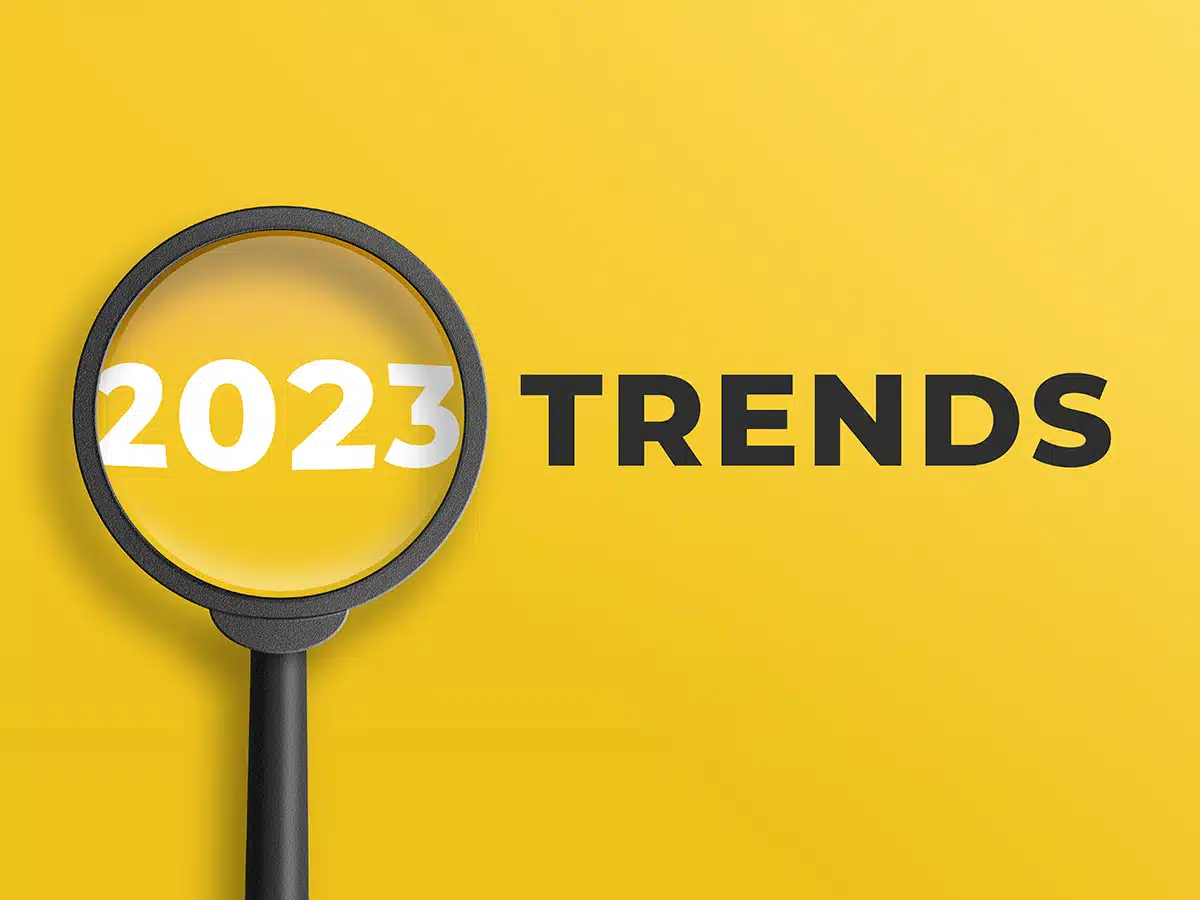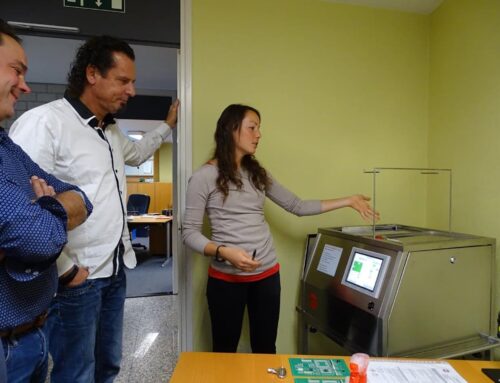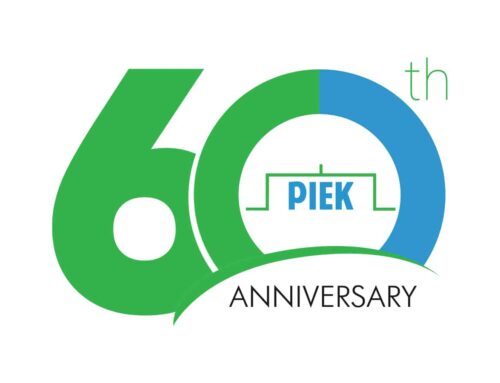It has been a tradition for PIEK to look into the future at the beginning of the year, and 2023 is no different. This article will be devoted to trends worth noticing.
Medical 3D printing technology
Tailor-made bones and bone implants printed on demand made from calcium-based minerals are no longer a pipe dream but a reality these days. The Danish company Particle3D is already able to supply such material. They cannot yet be used in humans, but tests in animals have been very successful so far. The implants stimulate a patient’s natural bone growth, breaking down over time themselves while being replaced by the patient’s own bone tissues. Licenses to use this technology on humans are expected to be issued in the course of this year.
Nowadays eye implants can also be manufactured with 3D printing technology in less than three hours. This greatly reduces the patient’s waiting time to a few weeks at most, whereas this was a few months in the past.
Nanotechnology and our body
Medtronics is a frontrunner in the field of nano technology. One example of their innovations is a digestible camera in the shape of a pill that travels through the stomach and intestines of a patient and allows doctors to make a diagnosis on the basis of the camera’s sensors and its high-resolution pictures. Nano technology is also used to spot the early stages of cancer and Alzheimer’s disease. For this purpose biosensors are placed in the patient’s body, communicating with equipment outside the body and allowing medical help to start early.
Sustainable technology
An increasing number of companies realises that sustainability does not stop at the front door. The fashion industry is well aware of it. There is a market place where retailers can put their unsold goods up for sale rather than bringing them to the trash incinerator. Another example is the use of recycled materials to produce shoes, as Adidas does for a sports shoe. Sustainable, alternative materials replacing traditional ones can also be seen in rising quantities in the meat industry. Plant-based meat replacements and dairy alternatives will create billion-euro annual turnovers in the years to come.
Artificial Intelligence
Artificial Intelligence (AI) will be playing an ever more important role in people’s lives and daily affairs in companies and organisations. Just look at the media windstorm that Chat GPT has whipped up in the last few months. The world cannot do without AI. It allows us to tackle medical problems more quickly and search for solutions, and it can also help us to ensure cybersecurity. Large Language Models make sure that machines understand us and can communicate with us. Chat GPT is an example of this. This chatbot consists of 175 billion parameters, and because of this it knows all texts published on the Internet. On the basis of a few key words it can create a coherent document on a certain topic. Currently a successor is being developed, called version 4, which will be 500 times more powerful than the current version 3. People will then no longer be presented with written texts only but also with spoken texts that are so life-like that they do not realise that they are actually talking to a chatbot rather than a real human being.
And it does not stop there. In the field of creativity and art chatbots can make a tremendous contribution too. At the moment AI is already used to compose music, write poems, design games, etc. It could well be that in this field the sky is the limit.
Flying taxis
Flying taxis are no longer science fiction. In Dubai the first test flight has been undertaken. Flying taxis can carry two to four people and reach a speed of up to 300km/h. They are faster, cheaper and more economical than normal taxis. Cities such as Los Angeles and Dallas are already anticipating these taxi developments and making room for sky ports or vertiports where these taxis can land and take off. Orlando will be the first US airport to get its own vertiport.
IOB the (Internet of Behaviour)
What actually is the Internet of Behaviour? The definition is “The process of the Internet of Things to collect and analyse user data in order to influence human decision-making and behaviour.” That is quite a mouthful. Translated to everyday life this could for instance be an app on your mobile phone helping you to move more if you have overweight issues, or an app measuring your blood pressure. By applying IoB in healthcare health costs could be substantially reduced, simply because a lot more preventive measures would be taken. Obviously, there are also disadvantages: by applying IoB inappropriately a government could infringe on people’s rights, so dictatorial states could well be interested in IoB for dubious reasons.
Digital platforms
Digital platforms are taking up more and more dominant positions in our lives and in the workings of companies and organisations. Can we go without platforms such as Uber, Tinder, Dropbox and Slack? Digital platforms will be making sure that companies will be able to tailor their products and services better to individual customers and will be able to collect a host of invaluable individual customer data. One digital platform that has already established itself as a household name is Shopify. For governments too there are digital platforms, e.g. in Seoul civil servants make use of the Digital Mayor’s Office platform.
Via this platform this have access to a huge number of real-time data of and in the city. This kind of digital platform will also be common in Europe in the years to come.
Augmented reality,
Mojo Vision has developed a very innovative contact lens which will become available for the consumer market in due course. The so-called AR lens open up new opportunities for information access: via small led screens the lens projects information directly on your eye. Future possibilities are endless. Think of an ambulance driver who can immediately see the floorplan of a building, so that he can reach the location of an injured person faster. Think of following stock prices real time when you are on the go. The applications are countless and can be tailored to any and every target group.
Blockchain
Blockchain will be playing an increasing role in international payment transactions but also in the telecom, media, healthcare, retailing and government. In particular with the certification of documents and with the prevention of fraud related to this, blockchain will become a crucial technology. Blockchain technology is also the basis for bitcoin technology. At this moment El Salvador has adopted the bitcoin crypto currency as legal tender for products and services, and various other countries are expected to follow, such as China, the UK, Japan, Sweden, etc.
Hyper automation
Hyper automation means that companies automate all their processes. Of course this is not a walk in the park, as one big European hospital can tell. When introducing hyper automation it struggled with various problems, but after these had been sorted they were able to reduce their costs significantly. Silverwork Solutions is a company that helps mortgage providers to drive down costs and increase customer satisfaction by hyper automation. The streamlining of corporate processes and the improvement of customer satisfaction will be taken care of by hyper automation.










